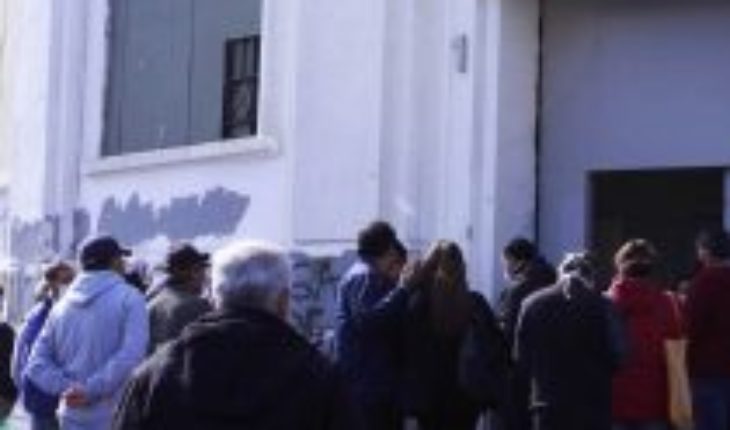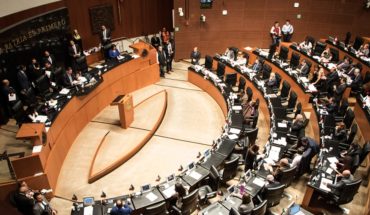
Crises are useful because while highlighting the shortcomings of the systems also allow us to generate improvements for these systems, this pandemic is no different and has put us in the face of the precarious protection afforded by our social security system. Citizens establish an agreement with the State, contribute with our taxes and our work, respect the laws and elect representatives with the explicit agreement to receive from it, protection. The State is to protect its citizens, all its citizens, not as a favor or an act of generosity, but as a duty and this duty is in crises where it is tested.
Social security is defined as “a set of existing programmes aimed at protecting workers’ income from unemployment, disease, accidents, incapacity to work during old age and their dependents from the invalidity or death of the head of household, and finally to improve the levels of consumption of minors and the elderly in poverty and destitution”. In normal situations we could say that it is enough for the State to “manage” what already exists, making small modifications as needed – I know that this is much more complex, but there will already be time to develop it -; however, in the face of contingencies such as those we are experiencing, the administration must move on to action and generation, that is, to assume the political responsibility that it fits and to respond to the states of need understanding that it cannot rely only on what is there, but to generate the tools of urgency that the situation requires. It is here that the basic principle of social security must become apparent, which is defined “as each one contributes to the social security system according to its contributory capacity and receives benefits according to its needs, which is an indispensable tool for the purpose of fulfilling the essential objective of social security: the redistribution of wealth with social justice. Solidarity implies that of the healthy with the sick, that of the young person with the elderly (intergenerational or horizontal), but also among people of different incomes, of those who have the least (intragenerational or vertical), even geographical solidarity between regions with more resources and others poorer” and this is especially important when we say “according to their needs”, because it happens whether what you contributed to the system is sufficient in quantity to cover them.
Everything has a value and someone must cover it but it is in urgent situations where the State must take responsibility for covering contingencies, must respond to the duty at issue in its genesis and give the “people” the necessary and committed livelihood; it is therefore unreasonable that in the face of the contingency of the inability to generate resources – and I do not say cesantía, because the issue has more to do with not being able to work, rather than having a job – as a first option workers are forced to take advantage of their own savings, allowing their labour rights to be relaxed to a point that could be considered a breach. A central part of the Government’s argument is to protect companies that could not generate revenue so they would not be in a position to meet their obligations – labour – and as an emblem of this is put to micro and small businesses. Indeed, a small business with only a couple of dozens of workers will be complicated, but what about the big companies that have been the first to take advantage of government-driven flexibilities? It is un interesting that large chains such as Starbucks have decided to benefit from the “suspend” employment relationship measure or that LATAM is praying for state aid due – mediated by wage rebate agreements with their workers – that for a couple of months their sales have been reduced. This situation is not called into question, but what it calls for reflection is that they are companies that have generated huge profits over the years, in transnational practice with billions of dollars businesses, and in which it seems that all these profits have vanished, the “gain” today stands at its absoluteest essence, which implies that for the owners of these companies what is “earned” is mine and if the company has no problems has to be touched – the untouchable “separation of assets” defended by the market – which leads to an even more complex point that has to do with the extent of which these companies are affecting their margins of profit to face the crisis to face the crisis , that is, I ask for help because I am selling less, but that “sell less” implies that I am also “earning less”, that I have lowered the percentage of expected profit on each sale, or only refers to the net sale. Unfortunately, there is little the State can do with current legal regulations, in fact they could not affect the assets of the owners of the companies for a “rescue” because they already have their particular levy, so when the company shows red numbers, independent of the gain of previous periods – already withdrawn – these are real and must be acted upon on them. So when Starbucks talks about crises and decides to send its workers to rely on cessation insurance, it’s true, even though it’s generated millions of profit in the previous quarter.
Today it has been chosen to assume as “disbelievers” workers “flexibilized” and use the cessation insurance tool, this can be practical for the Government because it allows it to use resources present in the market to deal with contingency, generating low level of debt and avoiding injecting new resources, or at least injecting them to a lesser extent; however, this creates several situations: first, as a concrete alternative, it only benefits those who have a current contract, leaving informal workers, self-employed or unemployed without the option; second, obliges workers to benefit from the use of own funds, savings for cessation, and to accept a reduction in their remuneration (insurance starts with a decreasing payment of 70% of the salary); and third, it leaves in a nebula what will happen when, once the pandemic has passed, the worker becomes unemployed and when trying to use the benefit does not meet the requirements for the pandemic. In a very confusing way the Government has tried to explain that this should not happen, that after the emergency workers could reuse the insurance, confused because they have not clarified the way in which this would be done, the law has its forms and must be fulfilled, and because it has also not been made clear where these resources would come from.
But there is another area that needs to be analysed and has to do with what the Government’s position is – and I say Government as the current administrator of the State apparatus – which seems more interested in protecting the large enterprise – the latest package of measures aimed at SMEs is not yet presented as a proposal to parliament – with a macroeconomic approach, than in taking measures that directly and courageously point to meet the needs of the internal economy. There is a stubbornness in showing an orderly and safe country for foreign investment, it strives to maintain the dream of the “jaguar” of Latin America or of the “oasis” that Piñera spoke about a week before the social outburst, refusing to recognize the structural problems that the crisis has shown us, such as the huge percentage of the population not covered by the current social security system – hand in hand with the sustained increase that has had self-employment and the sub-employment that technically reprehensible is called “entrepreneurship”, this pointed out by the Central Bank itself where in a study of 2018 it says that “approximately two-thirds of the employment created between 2014 and 2017 corresponds to the informal sector of the economy , a sector that served as a buffer for unemployment between 2014 and 2016, a period when formal employment suffered a major contraction” (p. 112, https://si2.bcentral.cl/public/pdf/revista-economia/2018/ago/rec_v21_n2_agosto2018_pp108-127.pdf) -; or the decrease in workers’ incomes, which has been widely denounced by the SOL Foundation, among others (here a very interesting study conducted by them in 2019 http://www.fundacionsol.cl/wp-content/uploads/2019/08/Los-Verdaderos-Salarios-ESI-2018-1.pdf), which has led to a direct widening of the income gap between those who earn more and less in our country. Along with this, the regulatory constraints that the State has to deal with the crisis and which imposes the constitution itself have also been demonstrated, preventing the intervention of strategic companies, such as energy companies, or the imposition of market control measures affecting production or price regulation, in practice it has limited its role in negotiating with actors, appealing to goodwill, refusing in principle to take drastic action, for failing to face possible long-term economic or political consequences in the short. Another element that strongly influences to establish policies that deliver “free” benefits is the entrenched belief in much of the population – very common in right-wing people – that what is given “free” is not valued and “malenseña”, this could be discussed at length but it is not the case, what is important is that in this case, in a pandemic crisis situation, the State assumes, for example, the wages of workers or that it gives large benefits to companies or that it derives direct resources to poblation that I would not qualify with the current instruments – middle class with self-employment – is not to be giving away, it is, on the one hand, to invest in human development, which will necessarily result in the development of the nation, and, on the other hand, to respond to the responsibility con incurred with citizens, recognizing a situation that escapes from all normality. In no case could it be intended that this would become something permanent, that is clear, they are measures of response to an emergency and that they are limited to it.
Chile is a country that has enjoyed several years of economic bonanza and has a good international image, so it has the possibility of obtaining resources abroad, as sovereign bonds, Chile can borrow and that does not mean spending, but a future investment, because it could undertake a profound reform of the national social and economic system, on the one hand by investing in a real social security system, expanding the tools to react to future emergencies, but also to make a deep reflection of the current state of society and develop the real reforms that are needed and that the population demands more and more force. It could be, for example, that the safeguards that large companies request are in exchange for ownership participation, banking and new lending policies for SMEs, that employment advocacy is based on income maintenance – a way of understanding that the impoverishment of the population is the impoverishment of the country – and that subsidy measures target companies directly, so that they can fully assume their duties to the workers – being able to focus on those who do not find formal work – the first of which is remuneration, and even intervene to pension fund managers to respond to the enormous problem that pension amounts mean today… but actually this is just an elucubration, for not only would it require the manifest disposition of the current Government, which does not exist, but also to affect the large economic groups of the country which, as a small and highly concentrated economy, are few and very powerful and, above all, to go over a Constitution and successive legal bodies tailored to the great capitals – by parliamentarians hired for that purpose – for more than 30 years, which prevent any profound change.
In short, the Government’s current position is to spend as little as possible on welfare, deriving spending to the limit of what is bearable to the resources of the workers themselves – the limit could be pension resources, of which remains the question of whether or not to affect these or for not generating conflicts with AFPs, certainly some of the most powerful economic groups in the country – and attracting the most investment from abroad, assuring them the maximum profit – not for nothing Chile received record foreign investment in the first months of the year and in the middle of the pandemic (https://www.df.cl/noticias/economia-y-politica/macro/chile-recibe-record-de-inversion-extranjera-en-los-primeros-meses-del/2020-04-07/173002.html) – seeming to take as a risk more the worsening quality of life of the population. It is not possible to build a healthy society when empathy for states of need must first be filtered by economic criteria, designed by and to favour certain sectors, that is not fair, it is unethical and neither is smart.
The content poured into this opinion column is the sole responsibility of its author, and does not necessarily reflect the editorial line or position of El Mostrador.




